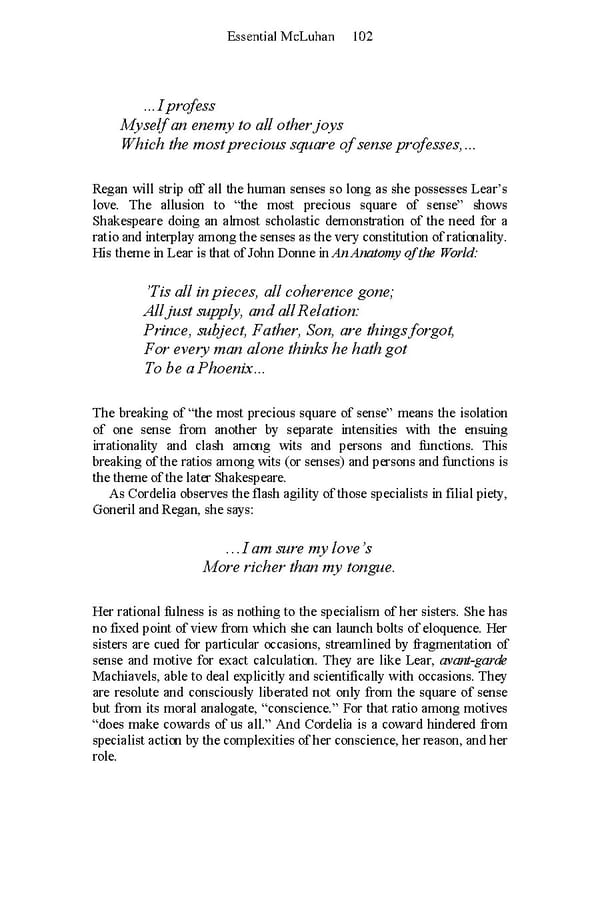Essential McLuhan 102 …I profess Myself an enemy to all other joys Which the most precious square of sense professes,… Regan will strip off all the human senses so long as she possesses Lear’s love. The allusion to “the most precious square of sense” shows Shakespeare doing an almost scholastic demonstration of the need for a ratio and interplay among the senses as the very constitution of rationality. His theme in Lear is that of John Donne in An Anatomy of the World: ’Tis all in pieces, all coherence gone; All just supply, and all Relation: Prince, subject, Father, Son, are things forgot, For every man alone thinks he hath got To be a Phoenix… The breaking of “the most precious square of sense” means the isolation of one sense from another by separate intensities with the ensuing irrationality and clash among wits and persons and functions. This breaking of the ratios among wits (or senses) and persons and functions is the theme of the later Shakespeare. As Cordelia observes the flash agility of those specialists in filial piety, Goneril and Regan, she says: …I am sure my love’s More richer than my tongue. Her rational fulness is as nothing to the specialism of her sisters. She has no fixed point of view from which she can launch bolts of eloquence. Her sisters are cued for particular occasions, streamlined by fragmentation of sense and motive for exact calculation. They are like Lear, avant-garde Machiavels, able to deal explicitly and scientifically with occasions. They are resolute and consciously liberated not only from the square of sense but from its moral analogate, “conscience.” For that ratio among motives “does make cowards of us all.” And Cordelia is a coward hindered from specialist action by the complexities of her conscience, her reason, and her role.
 Essential McLuhan Page 108 Page 110
Essential McLuhan Page 108 Page 110